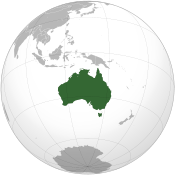Australia to introduce universal health and welfare smartcard
Thursday, April 27, 2006
Australia's federal cabinet has approved plans for a universal smartcard, which would be required to access health and welfare services from 2010. The card will be introduced from 2008.
The face of the card will contain its owner's name, a photograph, a number and the cardholder's signature. The card will also have a chip that will store a second photograph, address, date of birth, and details of children. Cardholders will be able to optionally include details of their next of kin, medical information and organ-donor status.
Australian Prime Minister John Howard says the card will replace 17 cards and vouchers used throughout Australia's health and welfare system. The card will be used to access unemployment benefits, pensions, healthcare rebates, childcare subsidies, veteran's entitlements and family tax benefits.
Mr Howard denied that the card was intended to be a stepping stone for a national identity card. He said that the card would not be compulsory and no person would be required to carry the card at all times.
Australians have never been keen on the idea of a national identity card. The idea for a national identity card first appeared in 1985 with a proposal for the Australia Card but was eventually given up upon, since then the idea has resurfaced on numerous occasions, most recently in 2002 after the London bombings. Mr Howard said his government had looked into a national identity card but the disadvantages outweighed the advantages.
The government hopes that the card will crack down on welfare fraud. The government estimates that it will cost $1 billion to implement the card and claims the card will save $3 billion over 10 years.
The Australian Labor Party, has cautiously welcomed the card, claiming to support it "in principle". The party's public accountability spokesman, Kelvin Thomson said that Labor will question if the card will be used to track people for national security purposes.
"Will this card be used for national security purposes and, if so, how?" Mr Thomson said.
Peter Hendy, chief of the Australian Chamber of Commerce and Industry (a body representing businesses in Australia said that the card would be intrusive and increase operating costs for businesses.
The Australian Council for Civil Liberties has also expressed concerns. ACCL president Terry O'Gorman said he is concerned that the card will infringe the right to privacy.
Sources
[edit]- "$1bn to be spent on welfare card" — news.com.au, April 27, 2006
- Michael Harvey and Gerard McManus. "New card key to health, welfare" — Herald Sun, April 27, 2006
- Michelle Gratton. "'Smartcard' to replace 17 others" — The Age, April 27, 2006
- By Louise Dodson and Stephanie Peatling. "Official: national card due by 2010" — The Sydney Morning Herald, April 27, 2006
| |
This page has been automatically archived by a robot, and is no longer publicly editable.
Got a correction? Add the template {{editprotected}} to the talk page along with your corrections, and it will be brought to the attention of the administrators. Please note that the listed sources may no longer be available online. |



